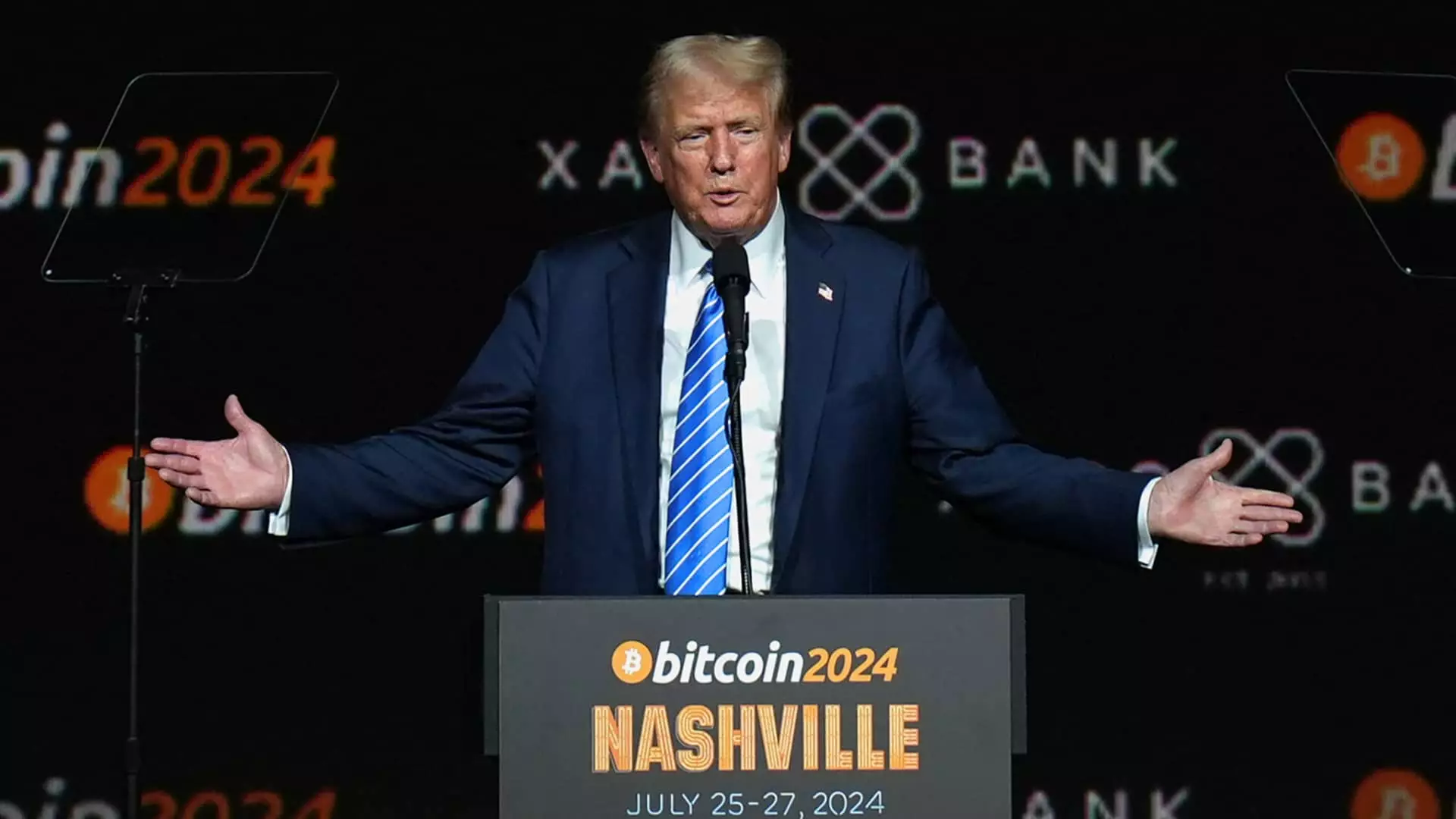The recent unveiling of Donald Trump’s cryptocurrency project, World Liberty Financial (WLF), presents an intriguing blend of politics, finance, and potential conflict of interest. With a detailed document known as the “World Liberty Gold Paper,” WLF attempts to clarify its mission and outline the allocation of its tokens. However, upon closer examination, the document reveals significant implications, particularly regarding the financial benefits that may flow to Trump and his family, stirring a mixture of skepticism and curiosity among potential investors and the public.
At the heart of WLF’s operations is a stark revelation about revenue distribution. The project is designed to allocate a staggering 75% of net revenue to the Trump family, implying that they stand to gain a significant financial windfall from the venture. Specifically, Trump and his family are identified as being entitled to 22.5 billion “$WLFI” tokens, which, according to current valuations, could equate to approximately $337.5 million. This notable financial arrangement raises important questions about the motivations driving Trump’s investment in the cryptocurrency ecosystem.
The intersection of Trump’s ongoing presidential campaign and the launch of WLF is particularly striking. As he competes in a tight electoral race against Vice President Kamala Harris, the potential for crossover influence between political motives and personal financial interests cannot be overlooked. Trump’s branding of the crypto project as “The DeFiant Ones” cleverly alludes to decentralized finance while simultaneously leveraging his political persona. This juxtaposition may not only attract his political base but also appeal to crypto enthusiasts, laying the groundwork for a potent marketing strategy.
In its initial efforts, WLF projected to generate $300 million at a valuation of $1.5 billion through its token sales. However, reports indicated that only $12.9 million worth of tokens had been sold as of Thursday, raising concerns about the project’s viability. Token sales of this magnitude in the cryptocurrency market are typically accompanied by rigorous marketing strategies that create urgency and excitement. The lackluster initial response may suggest challenges in effectively reaching potential investors or may indicate skepticism about the project’s underlying intentions.
Furthermore, WLF’s assertion that neither Trump nor his family would assume any liabilities raises eyebrows about the accountability and governance structures in place. While the document states that the project and associated tokens do not have political affiliations, this separation appears tenuous given Trump’s personal involvement and financial gain from the endeavor.
The backing of WLF by DT Marks DEFI LLC, associated with Trump, raises further questions. Not only does this connection blur lines between business and political interests, but it also suggests an ecosystem of multiple stakeholders who stand to benefit from WLF’s success. The allocation of net revenues, with 25% going to the Axiom Management Group, comprised of individuals with prior dubious financial ventures, adds another layer of complexity. One has to wonder whether the operational integrity of WLF can withstand scrutiny in this landscape.
Moreover, there’s the additional layer of involvement from Steve Witkoff, a close friend of Trump and a political donor. The intertwining of personal relationships and financial arrangements underscore the potential for conflicts of interest that are typical in both political and business landscapes. The natural question arises: who truly stands to benefit from the success or failure of this crypto venture?
World Liberty Financial’s attempt to present itself as a legitimate actor within the cryptocurrency ecosystem also faces the hurdle of public perception. Despite the well-crafted positioning, skepticism surrounding Trump’s business acumen and reputation might impede the project’s credibility. The potential links between WLF and political maneuvering add layers of complexity that could deter potential investors wary of investing in a venture perceived as intertwined with the uncertainties of Trump’s political ambitions.
While World Liberty Financial aims to carve out a niche in the rapidly evolving crypto space, its connection to Donald Trump inevitably subjects it to intense scrutiny. The document detailing token distribution and financial allocation not only raises questions about governance and accountability but also the ethical implications of profit at the nexus of politics and finance. As WLF attempts to navigate this precarious landscape, its long-term sustainability and public acceptance remain to be seen.

